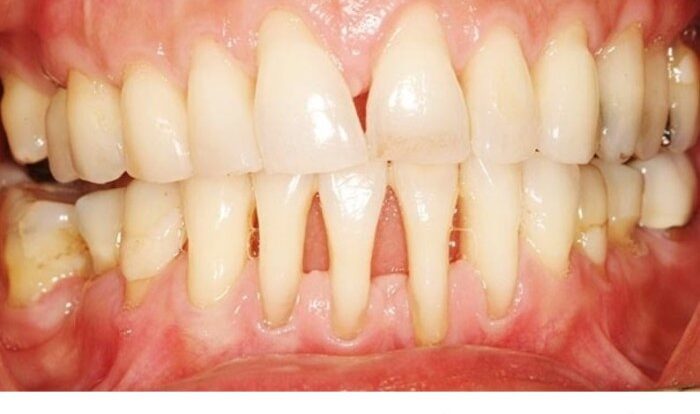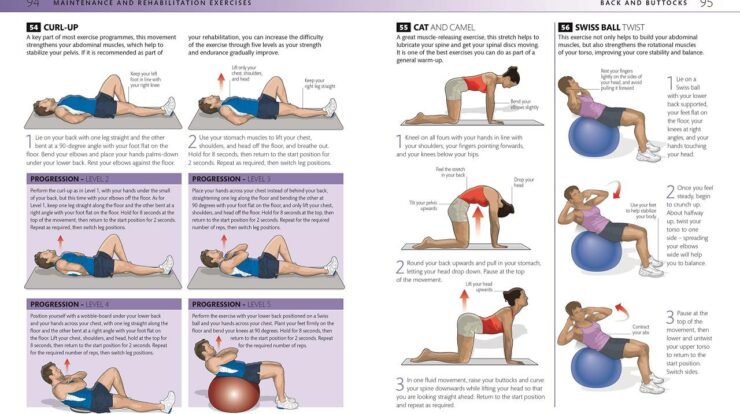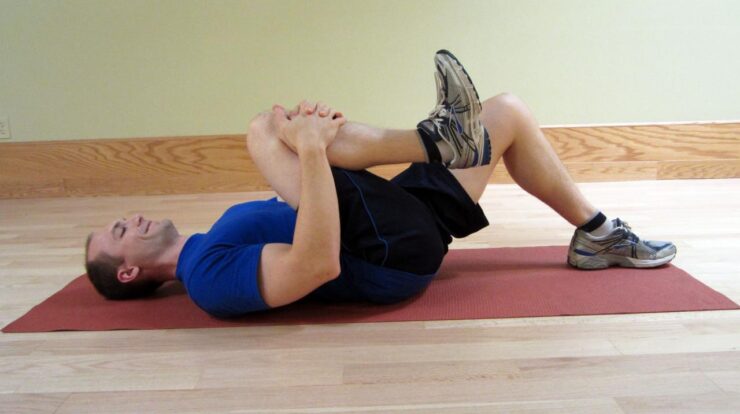
Wondering how to cure gum disease without a dentist? You’re not alone! Gum disease affects millions worldwide, but there are natural and home remedies that can help. Read on to learn how to take care of your gums and keep them healthy.
Gum disease is a serious condition that can lead to tooth loss and other health problems. But the good news is that it can be prevented and treated with proper care. This guide will provide you with everything you need to know about how to cure gum disease without a dentist.
Natural Remedies for Gum Disease: How To Cure Gum Disease Without A Dentist

Gum disease, a common problem, can lead to serious oral health issues. While professional dental care is crucial, incorporating natural remedies can provide additional support. This section explores various herbal treatments, natural mouthwashes, and essential oils that have shown promise in alleviating gum disease symptoms.
Natural remedies offer a holistic approach to gum health, leveraging the healing properties of plants and natural ingredients. These remedies can help reduce inflammation, kill bacteria, and promote tissue regeneration, thereby improving gum health and preventing further damage.
Gum disease is a common problem that can lead to serious health issues if left untreated. While it’s always best to see a dentist for professional treatment, there are some things you can do at home to help cure gum disease without a dentist.
For example, you can try rinsing your mouth with salt water or using a mouthwash that contains fluoride. You can also try flossing regularly and brushing your teeth twice a day with a soft-bristled toothbrush. If you’re looking for more information on how to cure gum disease without a dentist, you can check out this helpful article: how to cure gum disease without a dentist .
Herbal Treatments
Certain herbs possess antibacterial, anti-inflammatory, and antioxidant properties that make them effective for treating gum disease. These include:
- Tea Tree Oil:Tea tree oil is known for its antiseptic and antibacterial properties. It can be diluted in water and used as a mouthwash to reduce inflammation and kill bacteria.
- Aloe Vera:Aloe vera has anti-inflammatory and antibacterial properties that can soothe irritated gums and promote healing.
- Green Tea:Green tea contains polyphenols, antioxidants that can help reduce inflammation and improve gum health.
Natural Mouthwashes and Rinses
Natural mouthwashes and rinses can help maintain oral hygiene and reduce gum inflammation. Some effective options include:
- Baking Soda:Baking soda neutralizes acids in the mouth and has antibacterial properties. Mixing it with water and using it as a mouthwash can help reduce plaque and inflammation.
- Salt:Salt is a natural antiseptic that can help kill bacteria and reduce inflammation. Dissolving salt in warm water and using it as a mouthwash can be beneficial for gum health.
- Hydrogen Peroxide:Hydrogen peroxide is an antiseptic that can help kill bacteria and reduce gum inflammation. Diluting it with water before using it as a mouthwash is important.
Essential Oils for Gum Health
Essential oils, highly concentrated plant extracts, possess therapeutic properties that can benefit gum health. Some effective essential oils include:
- Myrrh:Myrrh oil has antibacterial and anti-inflammatory properties that can help reduce gum inflammation and pain.
- Clove:Clove oil is a natural anesthetic and antiseptic that can help relieve gum pain and kill bacteria.
- Eucalyptus:Eucalyptus oil has antibacterial and anti-inflammatory properties that can help improve gum health.
Home Remedies for Gum Disease

Home remedies can offer relief from gum disease symptoms and support oral health. However, it’s important to note that they are not a substitute for professional dental care. If you have persistent gum problems, it’s crucial to consult a dentist for proper diagnosis and treatment.
When your gums are hurting, you want relief, and you want it now. But what if you don’t have time to see a dentist? If you’re looking for ways to cure gum disease without a dentist, you’re in luck. There are a few things you can do at home to help relieve your symptoms and get your gums back to health.
For more information on how to cure gum disease without a dentist, check out this helpful guide .
Oil Pulling
Oil pulling is an ancient Ayurvedic practice that involves swishing oil in your mouth for 10-15 minutes. It helps draw out toxins and bacteria from the mouth, reducing inflammation and improving gum health. Sesame oil, coconut oil, or olive oil are commonly used for oil pulling.
Turmeric Paste
Turmeric, a powerful anti-inflammatory spice, can be used to create a paste for gum disease. Mix 1 teaspoon of turmeric powder with a little water to form a paste. Apply it to your gums and leave it on for 10-15 minutes before rinsing.
Turmeric’s curcumin content helps reduce inflammation and pain.
Saltwater Rinses
Saltwater rinses are a simple and effective way to relieve gum pain and inflammation. Dissolve 1/2 teaspoon of salt in a cup of warm water and swish it around your mouth for 30 seconds. Repeat several times a day for best results.
Oral Hygiene Techniques for Gum Disease Prevention
Maintaining impeccable oral hygiene is paramount in safeguarding against gum disease. This encompasses a meticulous regimen of brushing, flossing, and tongue cleaning, complemented by the judicious use of interdental brushes and water flossers. These practices effectively remove plaque and bacteria, the primary culprits behind gum disease, ensuring a healthy and disease-free oral environment.
Brushing and Flossing, How to cure gum disease without a dentist
Thorough brushing and flossing are indispensable pillars of gum disease prevention. Brushing twice daily with a soft-bristled toothbrush and fluoride toothpaste effectively dislodges plaque and bacteria from tooth surfaces. Flossing meticulously at least once a day is crucial for cleaning the interdental spaces, areas inaccessible to a toothbrush, thereby eliminating plaque and bacteria that can lead to gum inflammation and disease.
Tongue Cleaning
The tongue harbors a vast array of bacteria, some of which contribute to gum disease. Regular tongue cleaning with a tongue scraper or toothbrush effectively removes this bacterial reservoir, reducing the risk of gum disease development.
Interdental Brushes and Water Flossers
Interdental brushes and water flossers are specialized tools designed to enhance oral hygiene. Interdental brushes are small, cone-shaped brushes that effectively clean between teeth, removing plaque and bacteria that conventional toothbrushes may miss. Water flossers, on the other hand, utilize a pulsating stream of water to dislodge food particles and bacteria from interdental spaces and below the gum line, providing a deep clean that complements brushing and flossing.
Gum disease is a common problem that can lead to serious health issues if left untreated. While it’s always best to see a dentist for professional treatment, there are some things you can do at home to help cure gum disease without a dentist.
Click here to learn more about how to cure gum disease without a dentist and get your oral health back on track.
Dietary Modifications for Gum Disease
Dietary modifications play a crucial role in maintaining gum health and preventing gum disease. Understanding the foods to avoid and the importance of a nutrient-rich diet is essential.
Gum disease can be a pain, but there are ways to cure it without a dentist. You can try using natural remedies like saltwater rinses or tea tree oil. You can also try over-the-counter treatments like mouthwash or gels. If these don’t work, you may need to see a dentist for more aggressive treatment.
For more information on how to cure gum disease without a dentist, click here .
Foods to Avoid
Certain foods can exacerbate gum disease and should be limited or avoided:
- Sugary foods:Sugar promotes the growth of bacteria that cause plaque and contribute to gum inflammation.
- Acidic foods:Acids can erode tooth enamel and weaken gums, making them more susceptible to disease.
- Sticky foods:Sticky substances like candy or caramel can cling to teeth and create an environment conducive to bacterial growth.
- Hard foods:Hard foods like nuts or ice can damage gums and teeth, creating entry points for bacteria.
Benefits of a Nutrient-Rich Diet
A diet rich in essential nutrients is crucial for overall oral health, including gum health.
- Vitamin C:Vitamin C is vital for collagen production, a protein that strengthens gums and connective tissues.
- Calcium:Calcium strengthens teeth and bones, providing a solid foundation for healthy gums.
- Vitamin D:Vitamin D helps regulate the immune system, which plays a role in gum health.
Sugar Consumption and Gum Disease
Excessive sugar consumption is a significant risk factor for gum disease. Sugar feeds the bacteria in plaque, leading to acid production that erodes tooth enamel and damages gums. The resulting inflammation and infection can cause gum disease and other oral health issues.
Alternative Therapies for Gum Disease

Alternative therapies offer promising approaches to combat gum disease, providing additional options beyond traditional dental treatments.
Laser Therapy
Laser therapy utilizes concentrated beams of light to target and remove diseased gum tissue. This technique offers precision and minimal discomfort, promoting tissue regeneration and reducing inflammation. Studies have shown laser therapy to be effective in reducing gum pockets and improving gum health.
Ozone Therapy
Ozone therapy involves administering ozone gas to the affected area. Ozone has antibacterial and antimicrobial properties, helping to eliminate harmful bacteria that contribute to gum disease. It also stimulates blood flow and promotes tissue healing, reducing inflammation and pain.
Probiotics
Probiotics are beneficial bacteria that can help restore the balance of oral microbiota. By introducing these good bacteria, probiotics can inhibit the growth of harmful bacteria and support gum health. Studies have demonstrated the effectiveness of probiotics in reducing gum inflammation and improving overall oral hygiene.
Last Recap
By following the tips in this guide, you can improve your gum health and prevent gum disease from developing. Remember, prevention is always better than cure. So take care of your gums and keep them healthy for a lifetime of beautiful smiles.
Quick FAQs
Can I cure gum disease at home?
Yes, it is possible to cure gum disease at home with proper care. This guide provides natural and home remedies that can help improve gum health and prevent gum disease from developing.
What are the symptoms of gum disease?
Gum disease can cause a variety of symptoms, including bleeding gums, swollen gums, receding gums, and bad breath. If you experience any of these symptoms, it is important to see a dentist or periodontist for diagnosis and treatment.
How can I prevent gum disease?
There are several things you can do to prevent gum disease, including brushing and flossing your teeth regularly, eating a healthy diet, and avoiding tobacco products. This guide provides additional tips for preventing gum disease.





